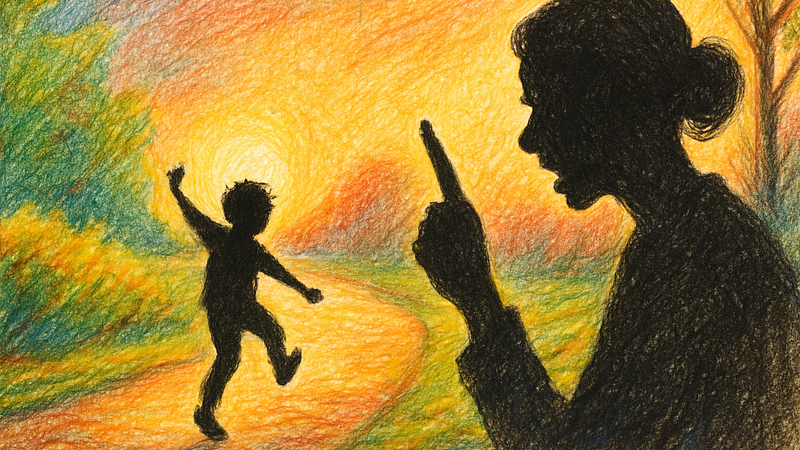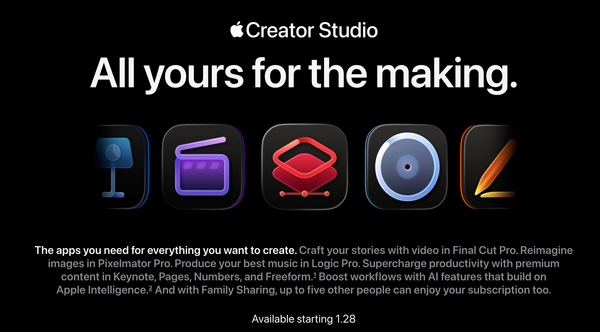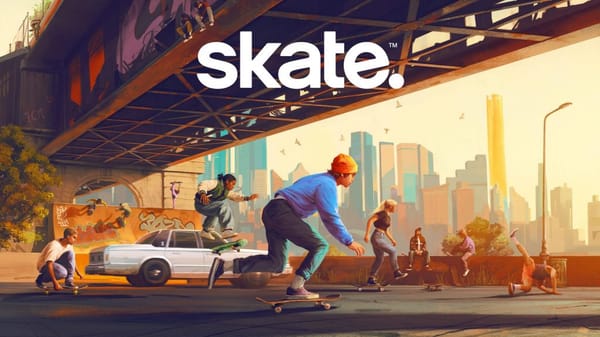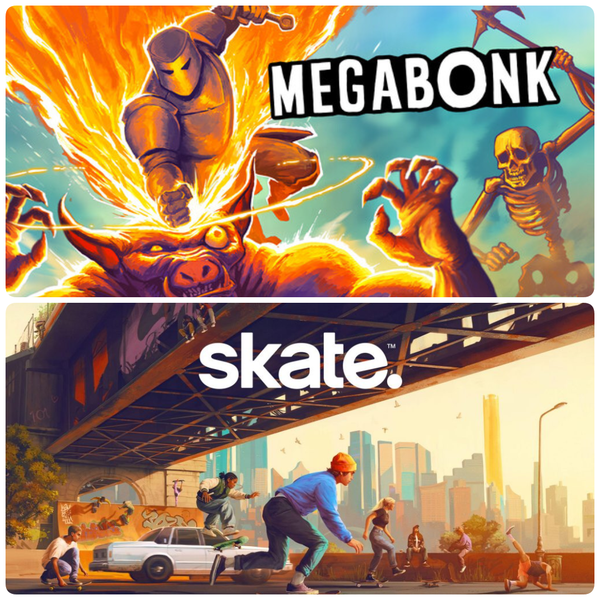They Stole Childhood From Us
We all have one thing in common: we all grow old. The second? Most of us never really got to be kids.

We all have one thing in common — we all grow old.
The second? Most of us never really got to be kids.
Most of the struggles we face as adults — burnouts, emotional disconnection, lack of identity — didn’t start in adulthood. They were receipts from when we were kids.
From a time when we were taught to grow up too fast, take life seriously too soon, and fit into systems before we ever understood who we were.
What we call healing today is often just a desperate attempt to recover the parts of ourselves that were never allowed to fully grow in the first place.
Instead of teaching kids how to feel, we taught them how to perform.
We rewarded obedience, discouraged curiosity, and punished anything that looked like “childish behaviour,” even when it came from actual children.
Emotional expression was labeled as dramatic, imagination was called distraction or absent-minded, and unstructured time was called wasted time.
What should have been a period of growth became a race towards maturity, with adult responsibility placed on the shoulders that weren’t built to carry it yet.
So we wonder why so many adults are miserable and seemingly bitter? Why they struggle to connect, to play, to rest.
They don’t know how to spend time with themselves without spiraling into guilt or anxiety, as they perceive it as a waste of time.
It’s because they were never taught that fun, curiosity, and creativity mattered. Those things weren’t nurtured — they were treated like distractions from becoming productive.
We don’t have a society of lazy people.
We have a society of emotionally stunted adults who were never allowed to be kids.
They were rushed through the most important years of development, and now they’re trying to piece themselves back together with words like “self-discovery” and “healing your inner child” without ever being told that the damage wasn’t theirs to begin with.
This is about nostalgia. It’s about reality.
The biggest flaws we carry into adulthood — our inability to rest, to play, to explore, to express freely — all trace back to the moment we were told that growing up was more important than growing into ourselves.
And it starts with what we took away far too early: Innocence, Creativity, Curiosity, and Fun.
Part I: Innocence Replaced by Responsibility
Childhood was never meant to be about duty. It was supposed to be the one stretch of life untouched by it.
The one period of time in our lives to learn through play, feel things deeply, and exist without a checklist.
But somewhere along the line, innocence was mistaken for weakness, and we started measuring kids by how quickly they could act like adults.
Responsibility became the badge of honor. The earlier you carried it, the more people clapped.
Kids were told to earn their keep, manage emotions they didn’t yet understand, and treat time like it had to be justified.
We taught them how to function, but not how to feel. We prepared them for jobs, not joy.
And what we got in return was a generation of adults who resent responsibility, not because they’re lazy, but because it was forced on them before they were ready.
It left a bitter taste. It turned something meant to be empowering into a burden they were never allowed to opt out of.
They didn’t choose responsibility, it was installed like software, hardwired into their identity before they even knew who they were.
But innocence wasn’t just lost — it was taken.
Not by accident. Not over time.
It was stripped from kids through ideas we sold as wisdom.
Here’s what we taught them, and what it cost:
“I worked when I was your age”
We turned financial trauma into a tradition, like struggle builds character. But it doesn't. It builds resentment. What we taught them is that money matters more than presence, and their time means nothing if it isn’t profitable. Now they grow up feeling guilty for resting and ashamed of needing help.
Emotion was a problem, not a signal
Tears were weakness. Anger was disrespect. Joy was “too much.” So they buried everything. Now they walk into adulthood emotionally tone-deaf, apologizing for feelings they were never allowed to understand, and mistaking numbness for self-control.
Discipline over discovery
Be good and you’ll be noticed. Do well and you’ll be loved. That’s the trade they learned. Now they overwork, over-apologize, and over-perform just to feel worthy of basic human attention. Their value was never internal — it was always earned.
Responsibility without readiness
Fun was only allowed once the “real work” was done. Imagination was indulgent. Now those kids are adults who feel lazy for relaxing and see joy as something to justify, not embrace.
Shame passed off as maturity
We told them to grow up, but what we meant was: stop being inconvenient. That didn’t build strength — it taught suppression. Now they censor themselves, shrink in conversations, and confuse silence with being “put together.”
We didn’t teach kids how to handle life — we taught them how to perform it.
We mistook silence for strength and stripped away the mess that made them human.
Now we’re left with adults who never feel safe in their own skin, carrying guilt for burdens they were never meant to bear.
We didn’t just lose innocence.
We crushed it under the weight of everything kids were never meant to carry.
Part II: Curiosity Punished, Creativity Silenced
Curiosity was never a flaw. It was instinct, and an urge to explore, touch, test, wonder, and wander.
It’s how children learn and discover the world around them.
It's how imagination comes from roots. But we didn’t nurture it. We told kids to sit still, follow the plan, and stop asking so many questions.
We called it discipline.
We called it focus.
What it was… was fear of failure.
Creativity didn't stand a chance either. Not when it wasn’t efficient, not when it didn’t fit a rubric.
We didn’t teach kids to express themselves — we taught them to edit themselves.
To only create when it could be graded, praised, or posted. We didn't make room for raw ideas, only polished outcomes.
So now, we’ve got adults who can’t enjoy a single moment unless it’s productive.
People who think they aren’t creative just because nobody let them be. People who are afraid of looking stupid, of trying something new, of making something pointless, because at some point, the world told them that it was a waste of time.
But curiosity wasn’t the problem. Creativity wasn’t a distraction. We just didn’t know how to handle what we couldn’t control.
Here’s what we told them and what it did:
“Stop asking so many questions.”
We didn’t teach them how to think — we taught them how to stop. Curiosity became a threat, not a strength. Now they second-guess every idea and stay silent in rooms where they could’ve made something better.
“That’s not how you do it.”
Creativity was corrected instead of celebrated. Unique became wrong. Now they can’t even start unless they know the outcome. Perfectionism killed play.
“Why are you wasting time on that?”
Exploration had to be justified. Wonder had to be useful. They learned to kill ideas before they were born, and now they can’t enjoy anything that doesn’t come with a clear reward.
“You’re too old for that.”
Imagination was given an expiration date. They were told to grow out of what made them feel alive. Now they feel childish for having interests, and boring for not having any.
“Stick to the script.”
We gave them templates, rules, formats, formulas. They memorized how to be right, but never how to be original. Now they cling to structure and panic when the script runs out.
“That’s not a real job.”
We crushed creative paths before they could be taken. Now they bury their passion behind practicality and call it being realistic.
We didn’t create confident thinkers; we built insecure imitators.
People who flinch at freedom, who hesitate in front of blank pages and quiet afternoons.
Not because they’re unmotivated, but because they were never taught how to create without being judged for it.
Curiosity was never the threat. Creativity was never the problem.
What broke them was the pressure to get it right before they were ever allowed to get it wrong.
Part III: Fun Rebranded as Frivolous
Fun was never supposed to be a reward. It was supposed to be the default. What's the point of living a life you can't enjoy?
The natural state of curiosity in motion, of joy unbothered by outcomes.
But somewhere between childhood and the finish line, we call adulthood fun, became something to feel guilty about.
We were taught to be serious, to focus, to build a future.
To stop being silly, playing too long, or enjoying too much.
We were told that doing something “just because” was immature, and that wasting time was a sin.
So we stopped playing, stopped goofing off, and stopped being present.
Not because we grew out of it, but because the world told us to grow past it.
Now we’re adults who don’t know what to do with ourselves when the work is done.
We look for purpose in screens, in consumption, in productivity.
We fill every silent moment with a stimulation or a vice because actual free time feels terrifying or forbidden.
We never learned how to relax, so we mistake boredom for failure.
But the truth is, we’re not all lazy. We’re not broken. We just never got to develop the muscle that makes fun feel natural.
Because when we were kids, when fun should’ve been everything, we were pushed into preparing for everything else.
Here’s how it was stolen from us:
“You’re not here to have fun.”
We treated joy like a distraction. Like it got in the way of growing up. Now we flinch when life slows down, and panic when there’s nothing urgent to do.
“Grow up, life isn’t a game.”
We were forced to take things too seriously, too soon. Play became immature. Now we can’t joke, loosen up, or enjoy anything without measuring its usefulness.
“You can relax when you’re done.”
But “done” never comes. The to-do list never ends. So now, rest feels like laziness, and happiness feels like something to earn, not something you’re allowed to have.
“You’ll understand when you’re older.”
But we’re older now, and it still doesn’t make sense. We gave up the best parts of life in exchange for what? Scheduling apps and salary brackets?
The Cost of Rushing Adulthood
After all this, it’s easy to wonder how we got here. Why do we feel so disconnected, so tired, so lost?
But the answer’s been hiding in plain sight. It’s not that we failed at being adults.
It’s that we were never allowed to be kids.
Most people aren’t chasing success. They’re chasing childhood.
Trying to buy back the time they lost, the joy they never got to feel, the parts of themselves they weren’t allowed to keep.
We say adulthood starts at eightteen. Eighteen. The word still has “teen” in it. But we give kids keys to cars, loans for college, and permission to go into debt before their brains are even fully developed.
Women don’t finish developing until around twenty-one. For men, it’s closer to twenty-five. And yet we expect life-altering decisions from people who haven’t even lived long enough to figure out what they enjoy.
We let kids take on debt before they’ve had time to daydream.
We let them sign up for careers before they’ve been allowed to explore.
And then we wonder why no one knows who they are anymore.
This isn’t just poor timing. It’s generational sabotage. And it has to stop.
Growing up is part of life, but it should happen on your terms, not on someone else’s schedule.
Kids should be given room to grow into adulthood throughout their twenties, not be shoved into it before they’re even ready to name who they are.



